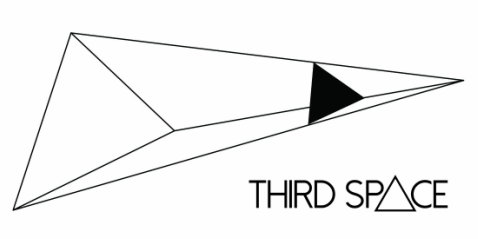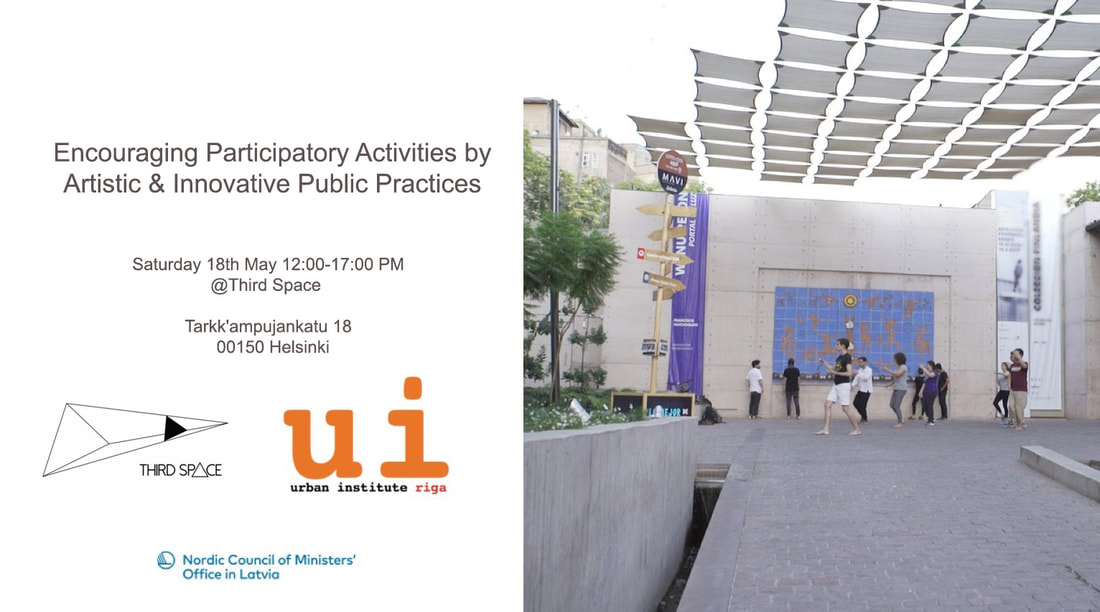Encouraging Participatory Activities by Artistic & Innovative Public Practices
18.5.2019
Saturday 18th May
12:00 - 12:30 Introduction and to get to know each other
12:30 - 15:30 Conversations and workshop
15:30 - 17:00 Reflections
FB event: https://www.facebook.com/events/306862300259089/
Welcome to join us in discussing how to create an inclusive city planning where people with different backgrounds and experiences can actively take part in the artistic and cultural activities. In exchanging knowledge and experience in the first event of a series, Third Space organises a public discussion, mind mapping and workshop in collaboration with Margarita Vološina, Indra Purs and Anete Vanaga from The Urban Institute, an NGO based in Riga, together with the invited artist Edwina Goldstone and architect and researcher Pedro Aibeo who will hold a workshop titled Architectural Democracy which proposes a framework to explore the relationships between architecture and democracy. The workshop creates a common ground for diverse stakeholders to better understand the complexity of cities, and thus to participate more actively in it. The workshop will give the participants deeper insight on the relationship between architecture and politics.
Actively questioning how to build a city, the event’s aim is to exchange artistic practices, knowledge and methods which may provide us with tools for the urban designing and activating neighbourhoods. Understanding that lack of attention to certain communities and people in societies leads to further exclusion, this collaboration focuses on promoting and attempting for recognition and visibility of all people in society.
The Urban Institute is an NGO based in Riga that collaborates with urban movements, professionals, academics and municipal and state institutions to create more liveable communities for everyone. The Urban Institute works on many different projects engaging with a wide range of people. They operate as a networking platform for everybody engaged in urbanism, organise events and carry out urban research. With the goal of strengthening urban movements and supporting communities and municipalities, the institute understands urbanism as a holistic, interdisciplinary and inter-cultural piece of public art that should be accessible for everyone. They work to create liveable communities in Latvia’s capital and beyond.
Accessibility information:
The entrance is 70cm wide and on street level, but there are three steps leading down to the space, measuring 20 cm each. No railing. Toilet is small and narrow, door measuring 60cm. Nearest accessible public toilet is located a few hundred meters away at Johanneksenpuisto.
This event has been produced with the financial support from the Nordic Council of Ministers. The content of this publication and the event is the sole responsibility of the coordinators of this project and do not necessarily reflect the views or policies of the Nordic Council of Ministers.


